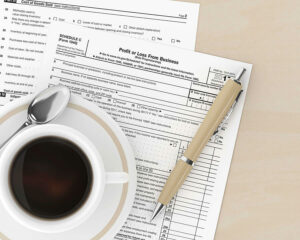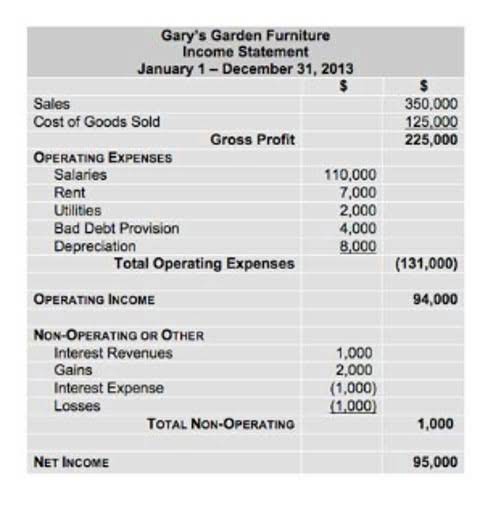
Double-entry bookkeeping additionally tracks owed amounts (accounts receivable) and owning amounts (accounts payable). Retain all profits – The sole trader retains all net business income and does not share profits with others besides paying taxes. You’ve got to handle business expenses, understand your tax responsibilities, and ensure you follow the HMRC’s digital submission rules. When starting a business as a sole trader, you’ll need https://prolificvent.com/what-is-a-retainer-fee-for-a-lawyer-retainer-fee/ to register your business with HMRC. You’ll also need to decide whether you’ll use the cash or accrual accounting basis. Sole Trader Accounting refers to managing and reporting the financial transactions of a sole trader — essentially an individual who runs their own business.

Should I open a separate business bank account?
One of the main challenges sole traders face is managing their finances, keeping track of expenses, and meeting Australian Taxation Office (ATO) requirements. While hiring an accountant is an Oil And Gas Accounting option, many small businesses and freelancers may not be able to afford the ongoing fees. Yes, lenders may require more evidence of income from sole traders than from salaried employees. Typically, you’ll need at least two years of accounts or tax returns to prove your earnings. Having accurate, well-organised records will make the process smoother and improve your chances of approval.
Intuit QuickBooks

In the grand scheme of things, MTD will make things much easier for sole traders. Digital bookkeeping and tax paying will save time and prevent mistakes. Bear in mind that MTD for ITSA will only affect sole traders who make more than £50,000 per year. Surprisingly, some sole traders have employees just like a small business.
How long does it take to set up?
- Typically, you’ll need at least two years of accounts or tax returns to prove your earnings.
- Digital tools can significantly enhance the efficiency and accuracy of record-keeping.
- Accounting is crucial in effectively managing the financial aspects of a sole trader’s business.
- If you’re a freelancer or sole trader in the UK, Ember offers everything you need to manage your finances with less stress—and no spreadsheets.
To maintain a clear overview of your business finances, it’s essential to record your income and expenses systematically. Understanding the different account types in sole proprietor accounting is crucial. Revenue accounts track income, while expense accounts monitor spending. Categorizing transactions accurately ensures precise financial records. A sole proprietorship is a type of business owned and operated by one individual. Sole proprietors have full control over their businesses and are personally responsible for the debts and liabilities.

Depending on your profits you will need to pay Class 4 National Insurance. From 6 April 2024 Class 2 National Insurance are treated as being paid, but you are still able to pay voluntary contributions if you want to avoid gaps in your record. Our support centre has a wide range of in-depth and practical help articles and videos covering every aspect of Solo. And if you’re new to self-employment, check out our popular beginners guide to self-employment on our blog. We pride ourselves on providing unbeatable expert support from real and local humans. You can get in touch with us via Solo’s in-app chat or send us an email.
Who are Sole Traders?
With so many business types under the self-employed banner, how can you make sure you’re getting accounting right for your niche? In this comprehensive guide, we break down the basics of doing your accounting. You’ll learn self-employed accounting practices, and tips on accounting methods, tax preparation and working with an accounting professional.
- You must register by the 5th of October to submit a self-assessment return for the tax year.
- Sole traders have more superficial business structures and operations.
- If you’re set on using QuickBooks as your accounting software provider, we recommend QuickBooks Online over QuickBooks Self-Employed.
- Frankly, if you do make less than $50,000 a year, we can’t recommend Zoho Books highly enough.
- Sole traders should seek a bookkeeping system that is good with monthly records.
- Solvent traders reap significant advantages by avoiding the pitfalls of tight bookkeeping protocols.
- Locking into a contract and finding some elements are limited could well be difficult and expensive down the line,” explained Smith.
- All records and receipts must be kept for a minimum of five years from the 31 January submission deadline of the relevant tax year.
- Choosing the right software depends on your business size, budget, and specific needs.
- Finally, the last step in setting up bookkeeping for your sole proprietorship is to create a system for recording transactions.
- Choosing a legal business structure is possibly one of the hardest decisions you initially have to make.
- QuickBooks allows users to connect their bank accounts so transactions are automatically imported, making it easier to reconcile accounts.
- With the help of Sheetify Bookkeeping, you can manage your finances within a single Google Sheets spreadsheet.
- You’ll need to use this to submit your self assessment tax return, so keep it in a safe place.
This software can prepare all the figures for the self-assessment tax return and track mileage and time. Many sole traders start small and then switch to a limited company as their business grows, often for tax efficiency or liability protection. The process involves registering with Companies House, changing how you pay yourself, and updating HMRC. It’s worth seeking advice before making the switch to ensure it’s the right move for your circumstances.

Most accounting experts recommend that, for sole traders, bookkeeping is done regularly (either weekly or monthly) to ensure you don’t fall behind to the point it becomes overwhelming. You’re not required to use an accountant–you can simply file your own Self Assessment return. QuickBooks Sole Trader is ideal for sole traders who aren’t (and aren’t likely to be) registered for VAT.
Self-employed accounts are records of income and expenditure kept by sole traders. For sole traders, choosing the right bookkeeping software to manage and streamline your finances can be stressful. Designed with sole traders’ and small business owners’ needs in mind, Wave is a free bookkeeping solution that doesn’t break the bank. FreshBooks is another cloud-based bookkeeping software perfect for sole traders or independent contractors. Plus, the intuitive, full-featured mobile app means busy sole traders can create and send invoices, track payments, reconcile transactions, and more on the go.
How much does it cost?
FreshBooks is a cloud-based accounting platform that offers a simple, modern solution for freelancers and business owners. With a 30-day free trial and 50% off for the first 3 months, it’s easy to get started. Designed to simplify invoicing, expense tracking, and VAT filing, FreshBooks combines powerful tools with a user-friendly experience that scales with your business. Tracking incoming payments accounting for a sole trader accurately is vital for sole proprietor accounting.
